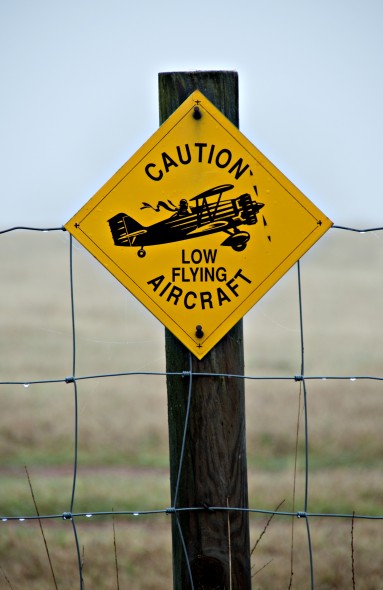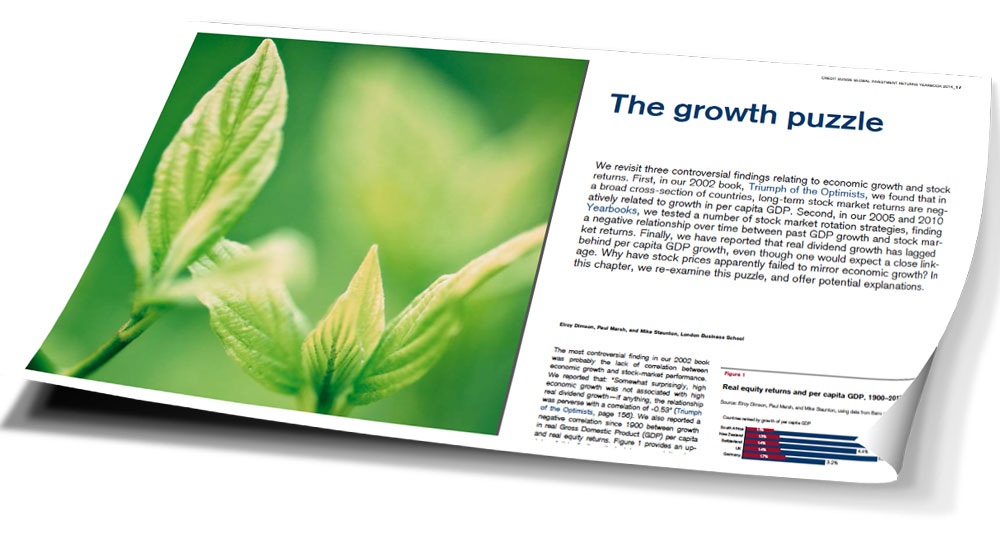by Jim Hall and Kara Lilly, Mawer Investment Management
One sunny afternoon, Paul Moroz, our Deputy CIO, was driving along the highway when he spotted an unusual road sign: Caution: low flying planes. Now, Paul is a mildly paranoid man in the best of times. The sight of such an ambiguous warning unnerved him. What was its point? Was he supposed to turn around? Pull over? A collision with an oncoming plane was the kind of risk Paul generally tried to avoid.
Our team explained to Paul that the point of this sign was “don’t panic.” It is common for planes to fly overhead in that area. The sign is meant to prevent drivers from being startled by the sudden noise or vibrations caused by low flying planes. Cognizant of this possibility, drivers have less chance of being accidentally scared off the road.
Investing could use its own version of this sign. Big macro events are like the planes that fly over that road: they come with the investment territory. Events like emerging market blow ups, Middle Eastern wars, rising interest rates, and currency shocks have been around since stocks traded on exchanges. They will probably always exist. Yet while major economic crises can have a large impact if they were to fully develop, they are often highly improbable. An investor need not panic and is best advised to keep her eyes on the road.
We think the current drama unfolding among emerging markets likely falls into this category. As the US economy heals and the Federal Reserve reduces its monthly bond purchases, capital has flowed out of emerging markets. Emerging market currencies like the Turkish Lira, South African Rand and Argentinian Peso have fallen in response, some by nearly 20%. Central banks in these countries have moved swiftly to defend their rapidly depreciating currencies by raising rates. It remains unclear whether these actions will prove successful. As the World Bank warns in its Global Economic Prospects Report, the outflow of capital from these economies should be manageable unless the pace of the outflow is too great, in which case these economies could become unstable. In this case, not only could the economy in question end up in a financial crisis, the crisis would likely spill across borders through the international banking network (European banks have an estimated $3 trillion lent to emerging markets). This would have a major impact indeed. Yet the probability of this occurrence is low.
Of course, pilots can make mistakes and mechanical errors do occur. The road sign is also meant to signal “be on guard.” If you’re in your car and a plane is in sight, it’s wobbling and there’s smoke behind it, it would probably be wise to slow down or stop the car.
This doesn’t seem to be the case for most emerging markets. Many commentators are making the case that the fragile five – Turkey, South Africa, Brazil, India and Indonesia – are showing signs of wobbling. These economies are seen as vulnerable due to their large fiscal deficits, significant short-term debt profiles, and deteriorating foreign currency reserves; conditions that make it difficult for their central banks to defend their currencies. Whether a crisis in one of them would be enough to undermine an otherwise recovering global economy is debatable. The risk our team is more concerned about is China. If China’s banking engine were to fail, all investors would feel an impact. But even in the case of China, the likelihood of a crash seems remote. The Chinese government has a significant financial arsenal at its disposal and has so far seemed willing to do whatever it takes to support the health of its banking sector.
At this point, we have one eye on the road and one to the sky. There does not yet appear to be enough smoke to stop the car, although we are being careful about our positioning on the road. Again, it is best not to panic. Most of the risks we are seeing now are likely just planes on a normal approach: noisy, a bit scary, but not something that requires evasive maneuvers.
Jim Hall & Kara Lilly
Copyright © Mawer Investment Management












